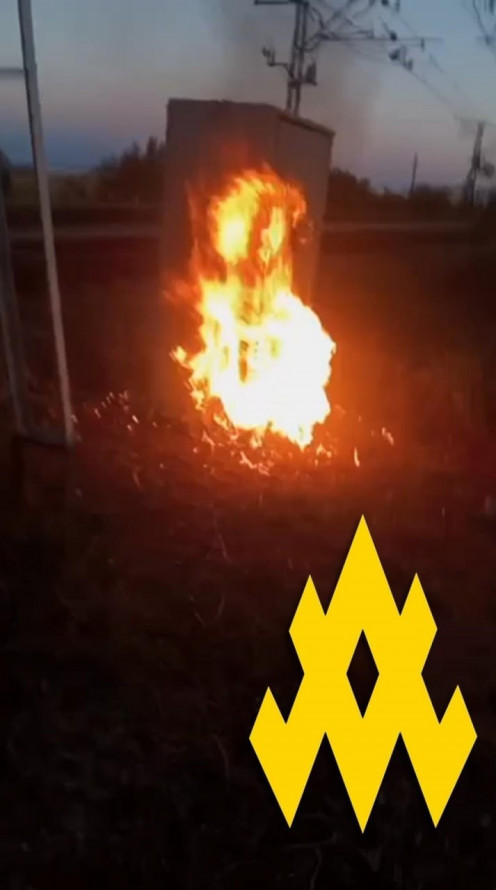Resistance never sleeps: Ukrainian partisans strike Russian rail and freeze ammo convoys

Ukrainian relay sabotage halts Russian supply line in occupied Ukrainian territories. Partisans from the Atesh resistance movement carried out a sabotage operation in Russian-occupied Kherson Oblast, blowing up rail infrastructure crucial for enemy logistics on the Zaporizhzhia front.
Atesh, formed in September 2022 following the start of Russia’s all-out war against Ukraine, claimed to have developed a network of agents within the Russian military. They have also established training courses to instruct Russian soldiers on how to damage their equipment.
Sabotage deep in enemy territory
“A member of the Atesh movement operating deep behind enemy lines conducted a successful sabotage along the railway between Safonove and Novooleksiivka,” the partisans report.
A relay cabinet was damaged, paralyzing the movement of ammunition and fuel trains toward Melitopol, a key logistics hub for Russian forces in Zaporizhzhia Oblast. Moscow troops control nearly 70% of the region, except for the main city – Zaporizhzia.
Russian-occupied Melitopol is gripped by a humanitarian crisis, with water and power outages, drone strikes on high-voltage equipment, mass raids, and repression against locals, according to Glavcom.
Despite this, the residents refuse to back down, memorial events continue in the city, such as those marking the anniversary of the Olenivka tragedy.
“Ah, this one’s dead? Good,” said Russian Olenivka prison chief — and continued sipping coffee
Zaporizhzhia front ablaze
Fighting remains intense, with over 500 Russian attacks reported in a single day, including airstrikes on Stepnohirsk and Novoandriivka, hundreds of drone strikes, and artillery barrages. Ukrainian forces hold the line, especially around Orikhiv, where they continue to repel assaults, says Ivan Fedorov, the region’s head.
The greatest risk in the region remains the Zaporizhzhia Nuclear Power Plant. Due to ongoing shelling of power lines, the facility is frequently forced to switch to diesel generators, posing a real danger of disaster.
Read also
-
Former prison colony head allegedly killed in targeted vehicle bombing in occupied Donetsk
-
“Ah, this one’s dead? Good,” said Russian Olenivka prison chief — and continued sipping coffee
-
Russian soldiers who looted Nova Kakhovka residents vanish as pro-Ukrainian partisans strengthen their network in Kherson Oblast
-
Russia uses thirst as tool of genocide against civilians in occupied Donetsk, says expert